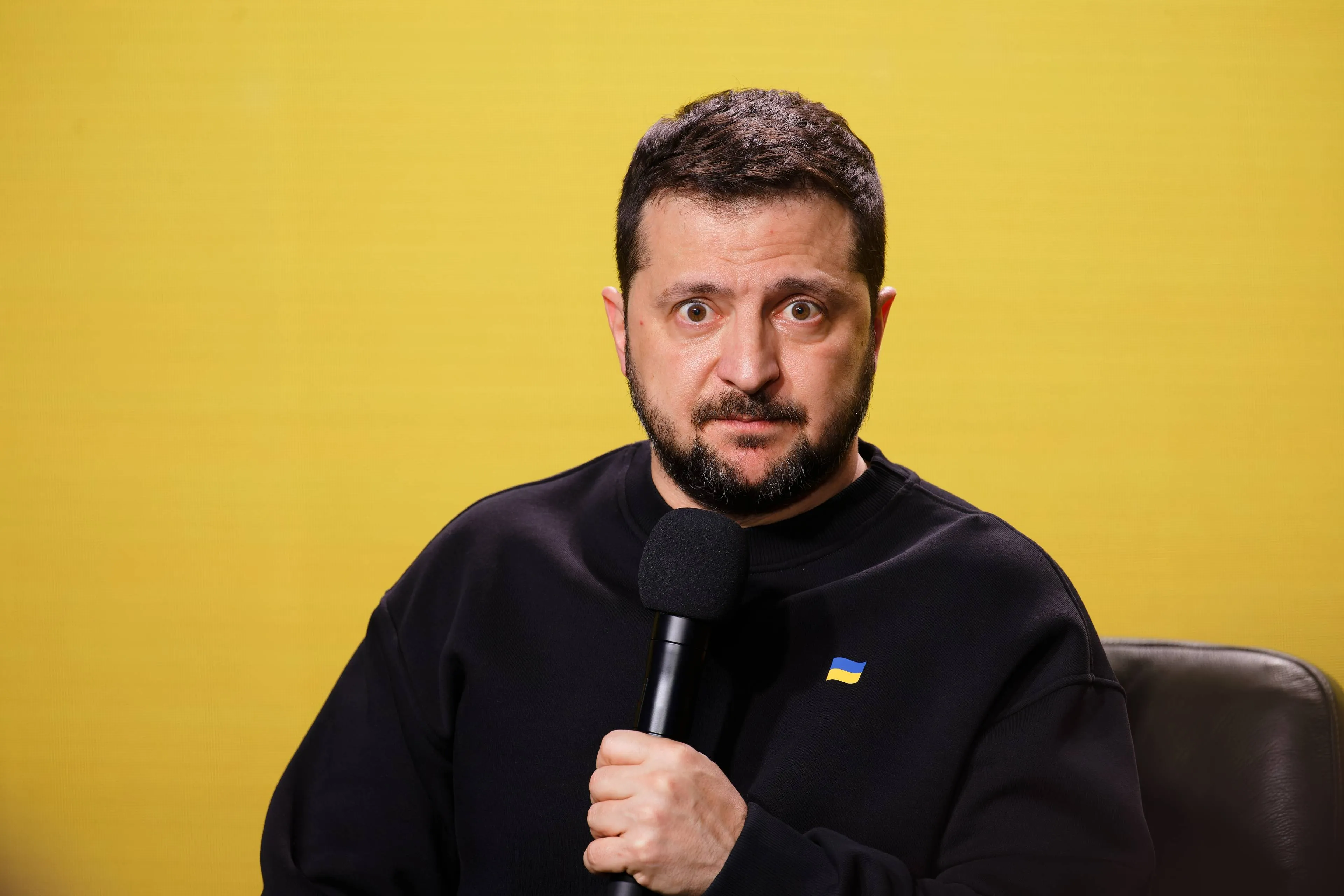Paus gaat zich nu ook met klimaatverandering bemoeien
Franciscus wenst westerse sociaal-economische orde op de schop te nemen. Een schoenmaker die zich niet bij zijn leest houdt.
Paus Franciscus heeft inmiddels al tegen vele heilige huisjes geschopt, hetgeen hem veel bewondering sympathie heeft opgeleverd, ook buiten kerkelijke kring. Zijn mededogen met de armen en afkeer van de Vaticaanse pracht en praal hebben veel aandacht getrokken. De klap op de vuurpijl vormde zijn openlijke kritiek op de hoogste echelons van de kerkelijke hiërarchie, die zich volgens hem meer met onderling gekonkel bezig hielden dan met hun eigenlijke taak. Dat was nog nooit vertoond, noch in de Rooms-Katholieke Kerk, noch in andere multinationals.
Maar de onvermoeibare Fransiscus heeft zich ook gemengd in geopolitieke zaken, zoals de dooi in de betrekkingen tussen VS en Cuba. Zijn ambities reiken echter verder. Hij wenst nu ook een rol te spelen in de klimaatonderhandelingen, die volgend jaar in Parijs in nieuwe bindende afspraken zouden moeten resulteren over de terugdringing van de uitstoot van CO2, die tot een catastrofale opwarming van de aarde zou leiden (een opwarming die overigens maar steeds niet wil komen). Over de kansen op succes van deze conferentie heb ik al vaak geschreven – die zijn nihil.
Onder de titel, 'Pope Francis' edict on climate change will anger deniers and US churches', rapporteerde MSN News:
He has been called the “superman pope”, and it would be hard to deny that Pope Francis has had a good December. Cited by President Barack Obama as a key player in the thawing relations between the US and Cuba, the Argentinian pontiff followed that by lecturing his cardinals on the need to clean up Vatican politics. But can Francis achieve a feat that has so far eluded secular powers and inspire decisive action on climate change?
It looks as if he will give it a go. In 2015, the pope will issue a lengthy message on the subject to the world’s 1.2 billion Catholics, give an address to the UN general assembly and call a summit of the world’s main religions.
The reason for such frenetic activity, says Bishop Marcelo Sorondo, chancellor of the Vatican’s Pontifical Academy of Sciences, is the pope’s wish to directly influence next year’s crucial UN climate meeting in Paris, when countries will try to conclude 20 years of fraught negotiations with a universal commitment to reduce emissions.
“Our academics [Noot HL: Wie mogen 'our academics' dan wel niet zijn? Dat is inmiddels bekend: de 'usual suspects'] supported the pope’s initiative to influence next year’s crucial decisions,” Sorondo told Cafod, the Catholic development agency, at a meeting in London. “The idea is to convene a meeting with leaders of the main religions to make all people aware of the state of our climate and the tragedy of social exclusion.” [Noot HL: Is het nu wel verstandig die twee aan elkaar te koppelen?]
Following a visit in March to Tacloban, the Philippine city devastated in 2012 by typhoon Haiyan, the pope will publish a rare encyclical on climate change and human ecology. [Noot HL: Hier wordt weer een verbinding gesuggereerd tussen één typhoon en klimaatverandering. Wetenschappelijk gezien is dat niet houdbaar.] Urging all Catholics to take action on moral and scientific grounds, the document will be sent to the world’s 5,000 Catholic bishops and 400,000 priests, who will distribute it to parishioners. ...
According to Vatican insiders, Francis will meet other faith leaders and lobby politicians at the general assembly in New York in September, when countries will sign up to new anti-poverty and environmental goals.
In recent months, the pope has argued for a radical new financial and economic system to avoid human inequality and ecological devastation. [Noot HL: Dit past in de linkse traditioneel anti–kapitalistische opstelling van de Rooms–Katholieke Kerk.] In October he told a meeting of Latin American and Asian landless peasants and other social movements: “An economic system centred on the god of money needs to plunder nature to sustain the frenetic rhythm of consumption that is inherent to it. [Noot HL: Weer die suggestieve anti–kapitalistische retoriek].
“The system continues unchanged, since what dominates are the dynamics of an economy and a finance that are lacking in ethics. It is no longer man who commands, but money. Cash commands. [Noot HL: De mensheid heeft nog steeds geen beter systeem dan het kapitalisme kunnen bedenken wat betreft de bestrijding van armoede en het creëren van welvaart en persoonlijke vrijheid.]
“The monopolising of lands, deforestation, the appropriation of water, inadequate agro-toxics are some of the evils that tear man from the land of his birth. Climate change, the loss of biodiversity and deforestation are already showing their devastating effects in the great cataclysms we witness,” he said. [Noot HL: Welke cataclysmen?]
In Lima last month, bishops from every continent expressed their frustration with the stalled climate talks and, for the first time, urged rich countries to act. ...
Francis’s environmental radicalism is likely to attract resistance from Vatican conservatives and in rightwing church circles, particularly in the US – where Catholic climate sceptics also include John Boehner, Republican leader of the House of Representatives and Rick Santorum, the former Republican presidential candidate.
Cardinal George Pell, a former archbishop of Sydney who has been placed in charge of the Vatican’s budget, is a climate change sceptic who has been criticised for claiming that global warming has ceased and that if carbon dioxide in the atmosphere were doubled, then “plants would love it”.
Dan Misleh, director of the Catholic climate covenant, said: “There will always be 5-10% of people who will take offence. They are very vocal and have political clout. This encyclical will threaten some people and bring joy to others. The arguments are around economics and science rather than morality.
“A papal encyclical is rare. It is among the highest levels of a pope’s authority. It will be 50 to 60 pages long; it’s a big deal. But there is a contingent of Catholics here who say he should not be getting involved in political issues, that he is outside his expertise.” [Noot HL: Het is bovendien een breuk met de secularisatie.]
Francis will also be opposed by the powerful US evangelical movement, said Calvin Beisner, spokesman for the conservative Cornwall Alliance for the Stewardship of Creation, which has declared the US environmental movement to be “un-biblical” and a false religion.
“The pope should back off,” he said. “The Catholic church is correct on the ethical principles but has been misled on the science. It follows that the policies the Vatican is promoting are incorrect. Our position reflects the views of millions of evangelical Christians in the US.”
Lees verder hier.
Zoals mijn trouwe lezers bekend is, is de menselijke broeikashypothese nooit bewezen, is de opwarming van de aarde zo'n 18 jaar geleden gestopt en is het milieualarmisme weliswaar tot dogma verheven, maar steunt het niet op de feiten.
Als de Vaticaanse prelaten niet zo druk zouden zijn geweest met het uitvechten van een onderlinge machtsstrijd, zou hen dat toch zo onderhand moeten zijn opgevallen. Niets daarvan! Maar ja, de Kerk maakt graag gebruik van dat soort dogma's.
Maar fundamenteler is dat deze pauselijke initiatieven passen in de anti-markteconomie – of zo men wil anti–kapitalistische – traditie van de Rooms-Katholieke Kerk, vooral in Latijns–Amerika waar de linksige zogenoemde bevrijdingstheologie en centrum–periferie theorie veel aanhang genoten.
In zijn opus magnum, 'The Spirit of Democratic Captalism', heeft Michael Novak daarvan een indringende analyse gegeven. Om het geheugen op te frissen zie hier en hier.
Hoe het ook zij, met zijn nieuwste initiatieven heeft de paus alweer de knuppel in het hoenderhok gegooid.
Voor mijn eerdere DDS–bijdragen zie hier.
Ga verder met lezen
Dit vind je misschien ook leuk
Laat mensen jouw mening weten


